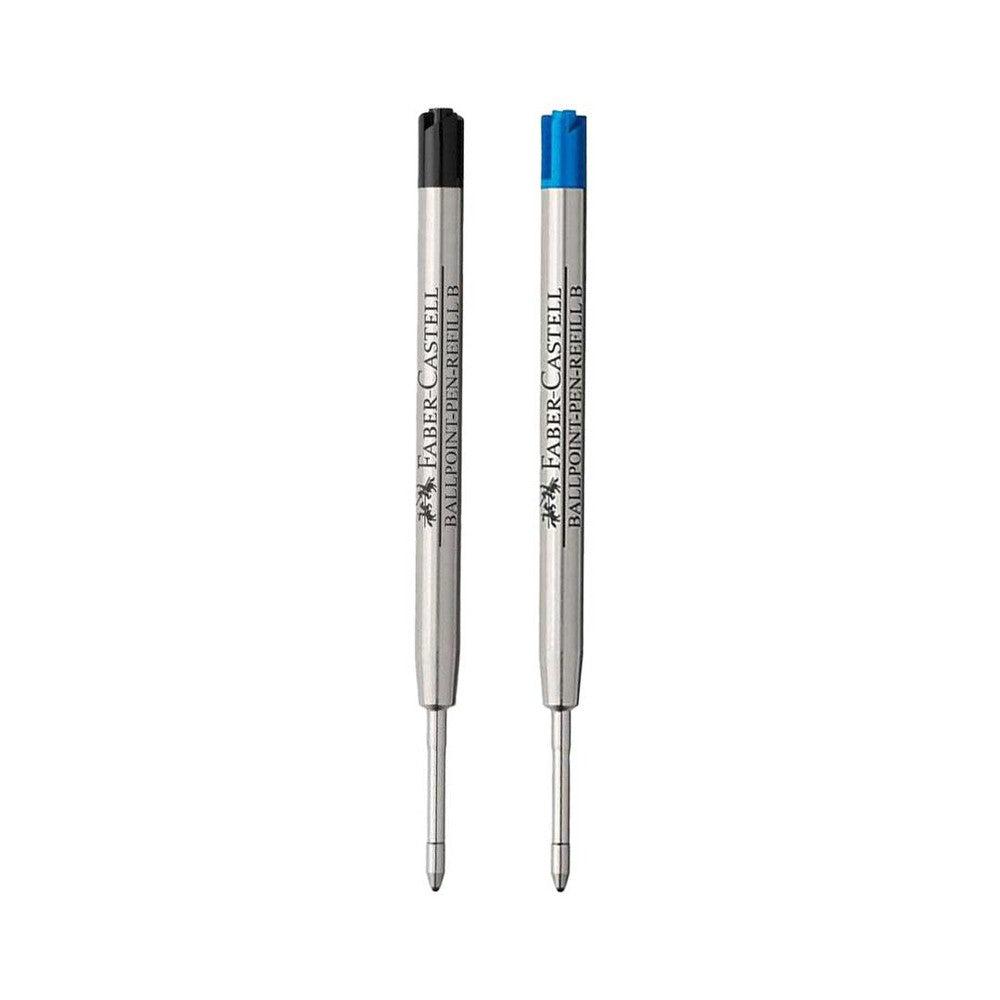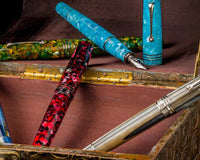It took a long time to get the ballpoint pen right. First patented in 1888 by American John Loud, the pen, designed with a ball at the end of an ink reservoir that rolls and coats itself with ink, failed because it leaked. Early versions used the same type of ink as fountain pens. Fountain pen ink is thin to facilitate the smooth flow and nearly pressure-free glide of the pen. But thin ink leaks and makes a mess when applied with a ballpoint pen. Fountain pen ink also takes a while to dry, and it smears if applied with a ballpoint.
The advantages of the ballpoint pen became obvious when a pair of Hungarian brothers, László and György Biró, devised a thicker, oil-based ink like that used in newsprint, which didn’t leak and dried faster. The brothers fled to Argentina during WWII and established the Biro pen company. Their pens became popular when the Royal Air Force bought tens of thousands of them because they worked well at flight altitudes. The Biros sold the rights to produce their pens in several different countries, including Marcel Bich of France. Bich figured out how to make the pens much cheaper, and when the inexpensive Bic Crystal pen came to America in the late 1950s, it grew to dominate the market.

Today, however, ballpoints have grown up into handsome writing implements with beautiful barrels made to accommodate a more comfortable grip, because ballpoints require more pressure than fountain pens. Ballpoints rarely get clogged or dried up as fountain pens can, but when they do, there is a clear advantage to ballpoint pens: they can write in any direction. Rolling the ball up, down, sideways, and round and round will usually dislodge any clog and get the ink flowing again.
The oil-based ink ballpoint use won’t typically rinse away if you spill water on it. Ballpoints can also write directly on hard surfaces, which might damage or break the nib of a fountain pen.
Ballpoints aren’t known for facilitating elegant penmanship in the way fountain pens, which encourage connected, cursive writing, do. But they do provide consistency in line width, and they don’t require much practice for novices. For legibility, lack of smears, and economy of ink, premium ballpoint pens are an excellent choice.
By Some Folks at EndlessPens











1 comment
Rahman
Thanks For Sharing This Type of Info With Us! Love Gift Pens